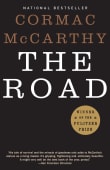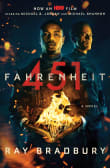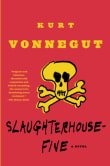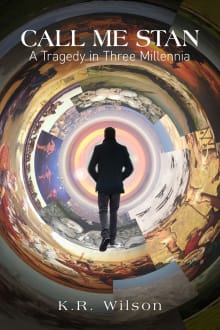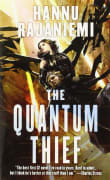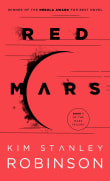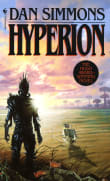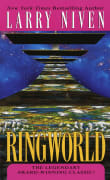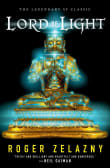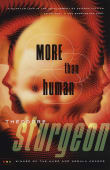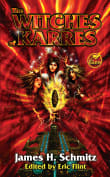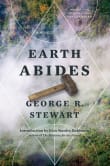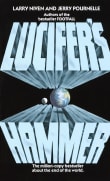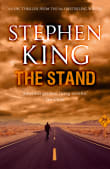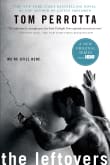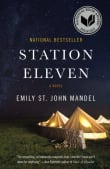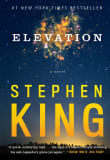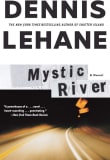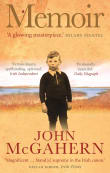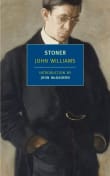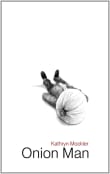A Canticle for Leibowitz
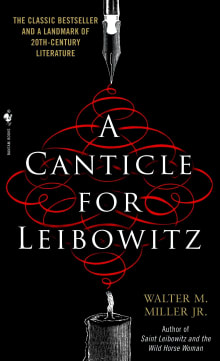
Book description
In the depths of the Utah desert, long after the Flame Deluge has scoured the earth clean, a monk of the Order of Saint Leibowitz has made a miraculous discovery: holy relics from the life of the great saint himself, including the blessed blueprint, the sacred shopping list, and the…
Why read it?
11 authors picked A Canticle for Leibowitz as one of their favorite books. Why do they recommend it?

I first read the Canticle forty years ago, and yet, when asked to recommend five books, this was the first one that came to mind. It threw me into an insane world, yet one that seemed only too possible.
My favorite character is Abraham, a tent-dwelling timeless man who lives through the several generations that the book follows. I am not a fan of dystopia, but this is an exception. Now that I’ve recommended it- I’m going to go read it again.
From Joel's list on craziest books that will make you think.

I loved this book for its tragic characters and its ultra-meticulous plotting. Walter M. Miller only published one book in his lifetime, and I’m so happy he did. I read it every time I want to see “how it’s done,” and walk away amazed.
From Stephen's list on dystopian and sci-fantasy novels.

This is a classic that I read about at about 10 years old, a decade after its first publication. It was absolutely formative of my future preferences in that it paints on a huge canvas spanning 1800 years.
This book presents much for both religionists and atheists to ponder. Cynics and nihilists will find themselves smiling. The book is presented as three semi-distinct novellas separated by 600 years. Similar to my book, the way the drama unfolds contains no element that appears out of left field. Things make sense.
Despite being written on a fairly high level, the text is…
From Perry's list on inspiring depressing books Science Fiction.
If you love A Canticle for Leibowitz...

Folks daunted at the prospect of jumping in to a longer series will be delighted to know that this is just a standalone novel. In fact, it was the only novel Walter M. Miller, Jr. wrote in his lifetime. There is a posthumously published sequel to this novel, but it was completed by another writer and is generally considered the lesser work, and at any rate, Canticle stands on its own. This is a post-apocalyptic novel, set after a nuclear war in the 1960s wiped out civilization. It takes place over the course of centuries, and follows a small Roman…
From Christopher's list on science fiction for fantasy readers.

This novel is a serious, sprawling epic that, over stages, takes the reader hundreds of years into a future where the United States is recovering from the effects of a massive nuclear war. Although I didn’t find the characters especially relatable, it was still a very engrossing read that gave me a lot to think about, as it explores the cycles of civilization, war, decay, and rebuilding, that are continually reoccurring in our species’ history.
From S.'s list on human determination to survive in the face of doom.

In 1971, I wrote a short story for a creative writing class at a Catholic HS in Chicago in which humans had just rebuilt the world after a 2,000-year-old apocalypse and were making their “first” landing on the moon (only to discover our Apollo mission had already gone there). My instructor, a Jesuit brother gave me Walter Miller's A Canticle for Leibowitz to read. I had never even heard of it, but it blew my mind. I found it to be imaginative and thought-provoking. While the novel had very little in common with my story, its kindred spirit presented a…
From John's list on sci-fi with superior ideas from the 1950s.
If you love Walter M. Miller, Jr....

Published in 1959 (and never out of print)—arguably the best and most idiosyncratic of post-holocaust novels. Civilization is kept alive by a group of monks in the southwestern United States. Remarkably, it’s filled with irony and humor, as well as minute attention to the details of monastic life. Written as a 3-part narrative, it manages, incredibly, to span 1800 years. I’ve lost track of the number of times I’ve re-read it.
From Terence's list on searching for answers in the past and present.

I read this apocalyptic novel many years ago, and found it as unforgettable as it was depressing. In the midst of death, disease, and anarchy after nuclear war destroys civilization, there remain small self-contained settlements that resemble monasteries in the middle ages. These settlements are the only pockets of knowledge in the devastated landscape. People who live in them struggle to understand formerly-common technologies, such as record players and other artifacts from the civilized world. One thing they do understand is that nuclear technology is dangerous and any development in this area is absolutely forbidden, under pain of death. But…
From Peter's list on stories built on an inspired premise.

A Canticle for Leibowitz truly has all three aspects of apocalyptic, post-apocalyptic, and dystopian set in a three-part cycle. My middle school English teacher gave it to me to read since I was bored with what she was teaching. I cannot thank her enough. Canticle has a fascinating premise: six centuries before the story begins, a worldwide atomic apocalypse occurred. Blaming the scientists and thinkers, survivors, dubbing themselves “Simpletons,” hunted and killed off academics, scientists, and other people with knowledge.
Leibowitz founded a monastery in the Utah desert to preserve what knowledge they could. He is being considered for sainthood…
From Robert's list on those good old apocalypse days.
If you love A Canticle for Leibowitz...

In a post-nuclear-war future filled with savagery and ignorance, a band of monks labor to preserve the relics of a forgotten age, waiting for the time to re-introduce science and literacy to a world that has forsworn both. Brother Francis discovers relics of the blessed Saint Leibowitz, the founder of the order, and that discovery sets in motion the return of civilization...and the return of the same problems that bedevil us today. Told in three parts, and with great humor, this is the story of humanity's cyclic struggle between the forces of creation and destruction.
From Jerry's list on classic science fiction that bear re-re-reading.
If you love A Canticle for Leibowitz...
Want books like A Canticle for Leibowitz?
Our community of 12,000+ authors has personally recommended 100 books like A Canticle for Leibowitz.



